The Magna Carta «…here is a law which

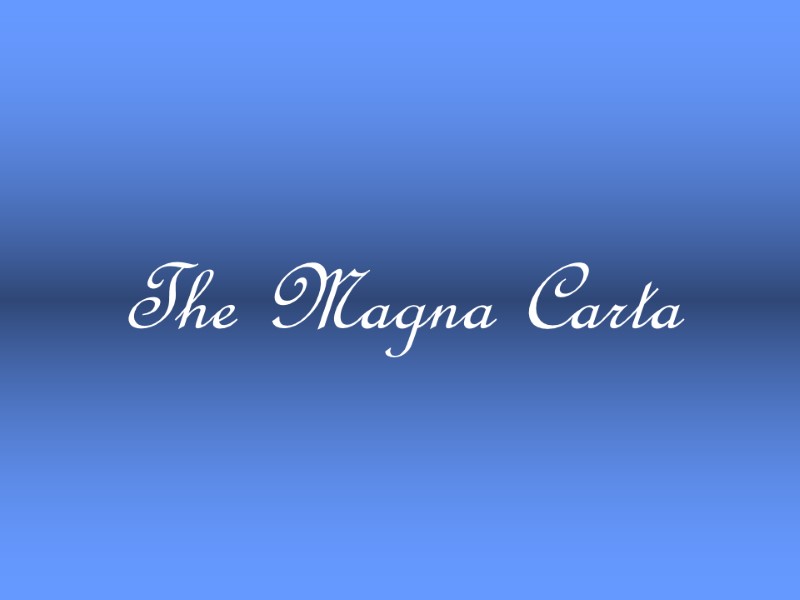
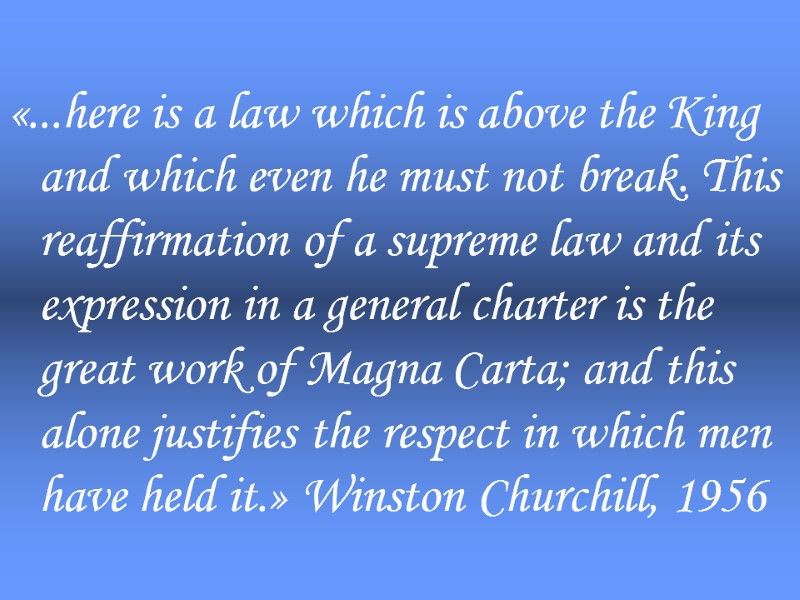
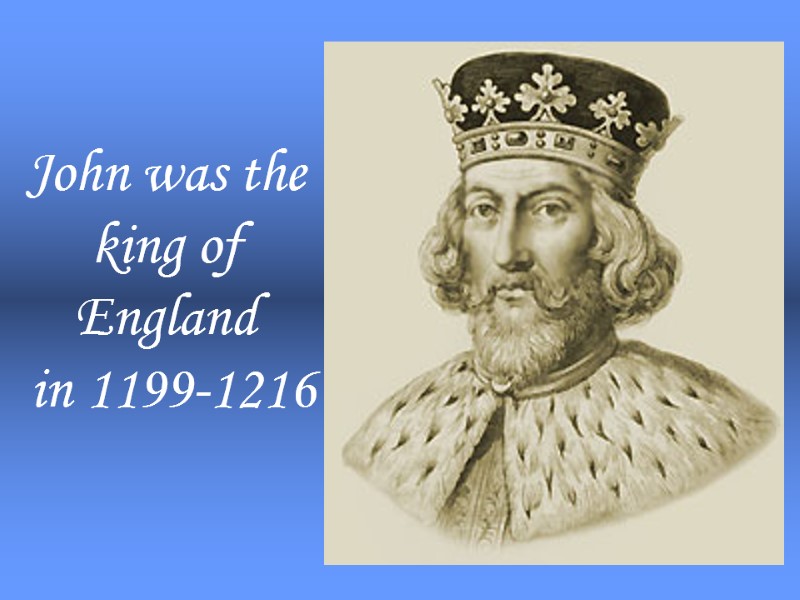
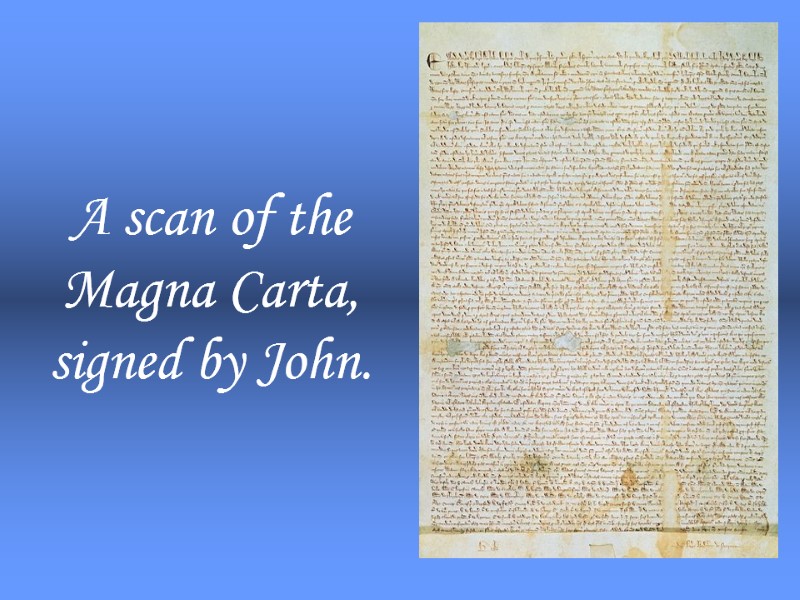
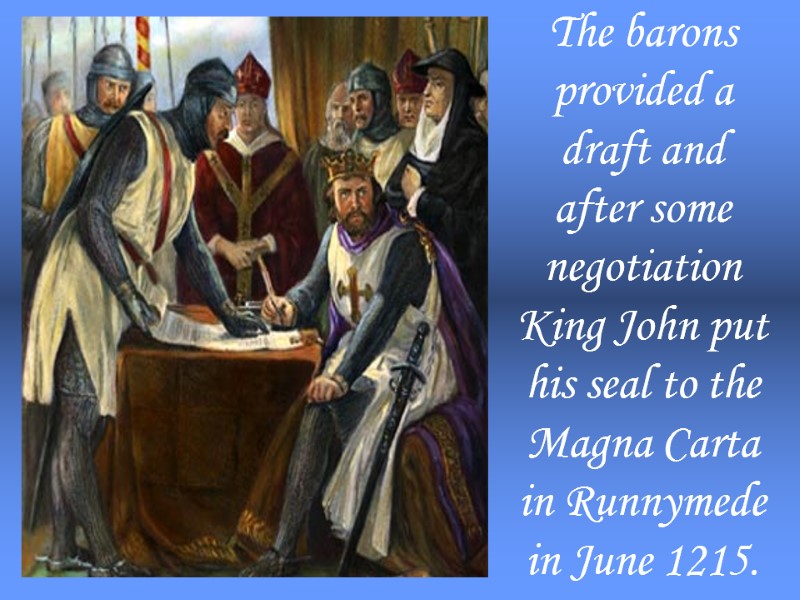
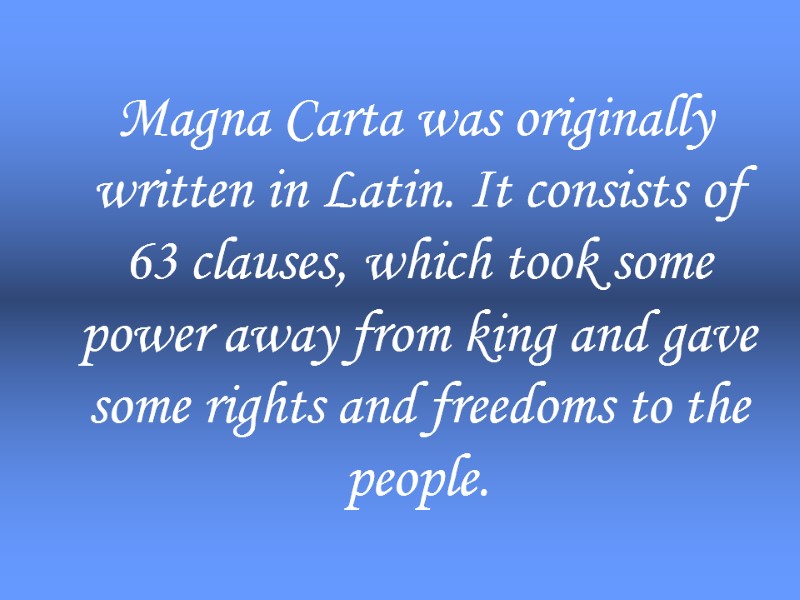
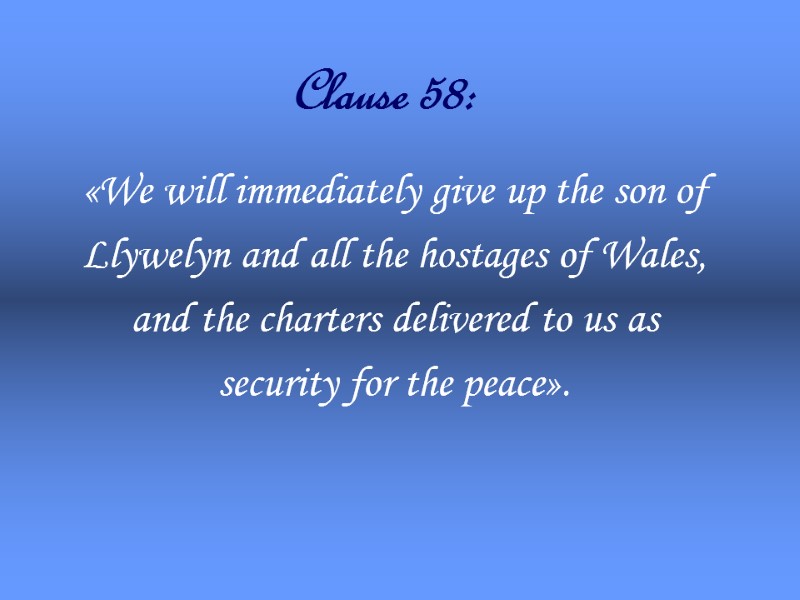
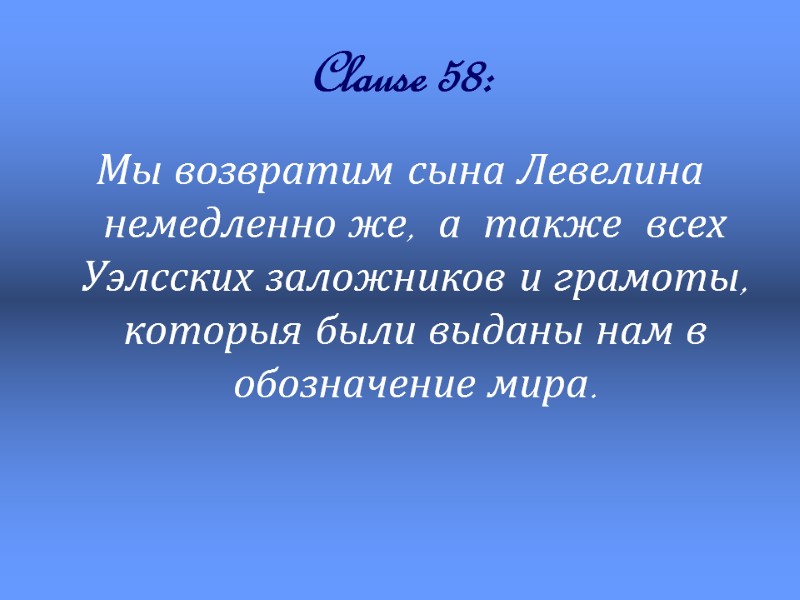
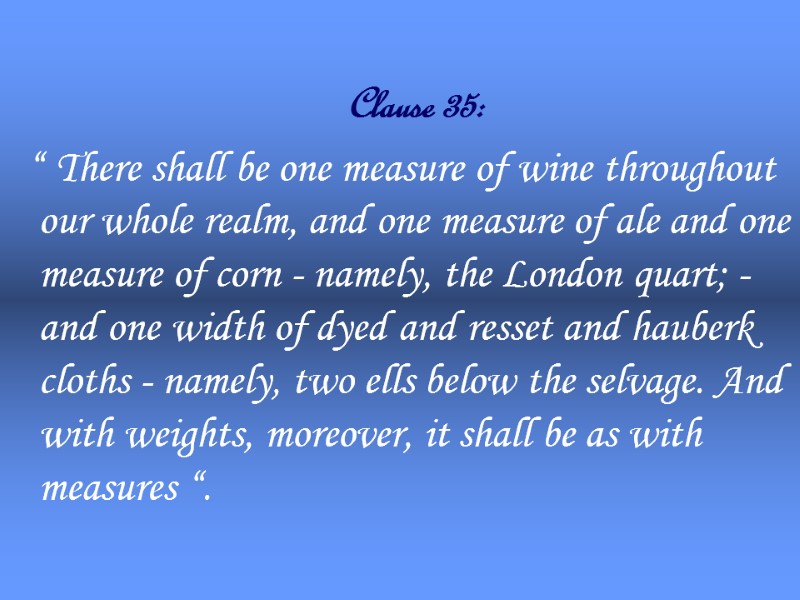
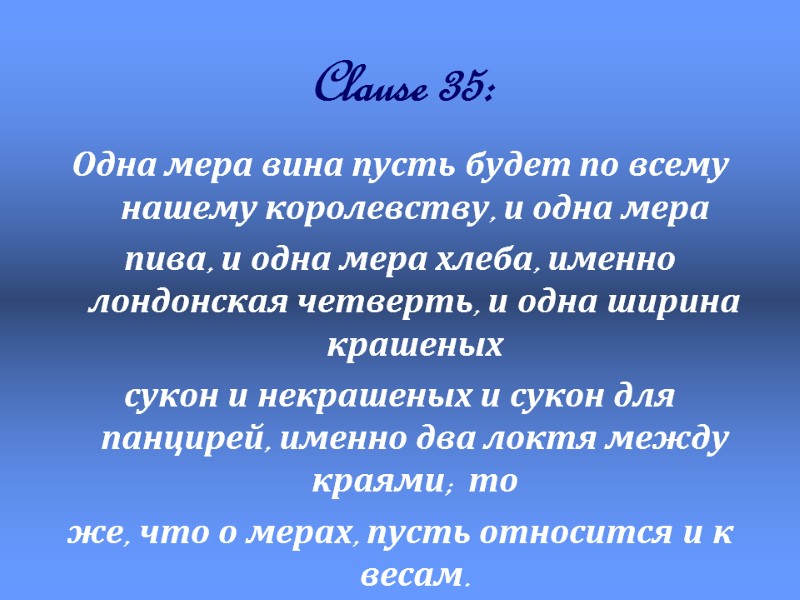
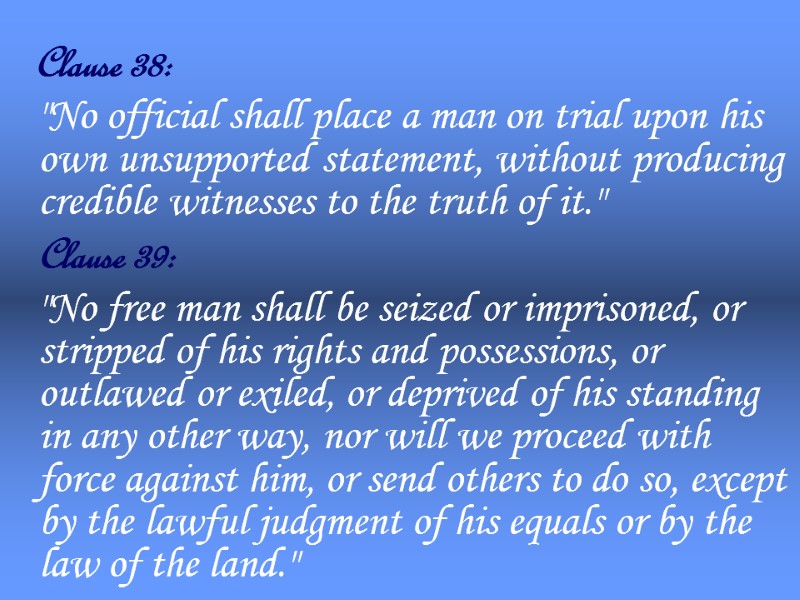
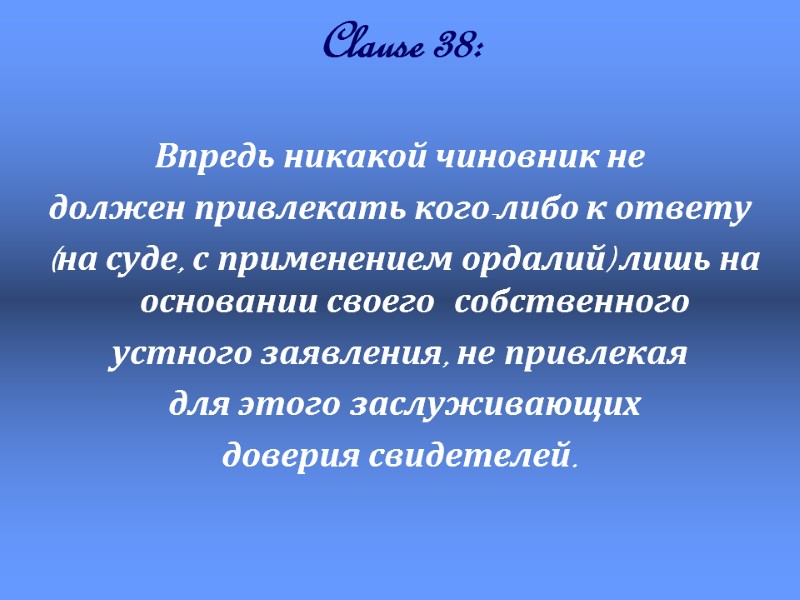
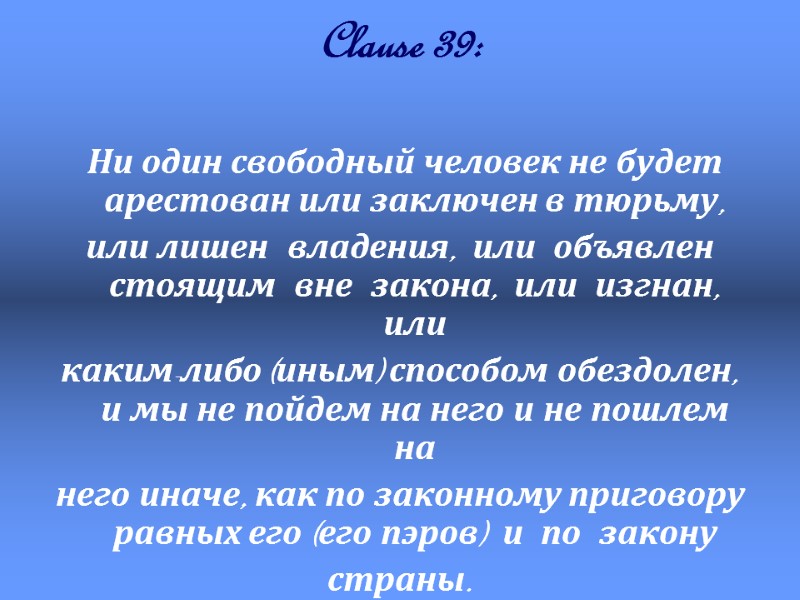
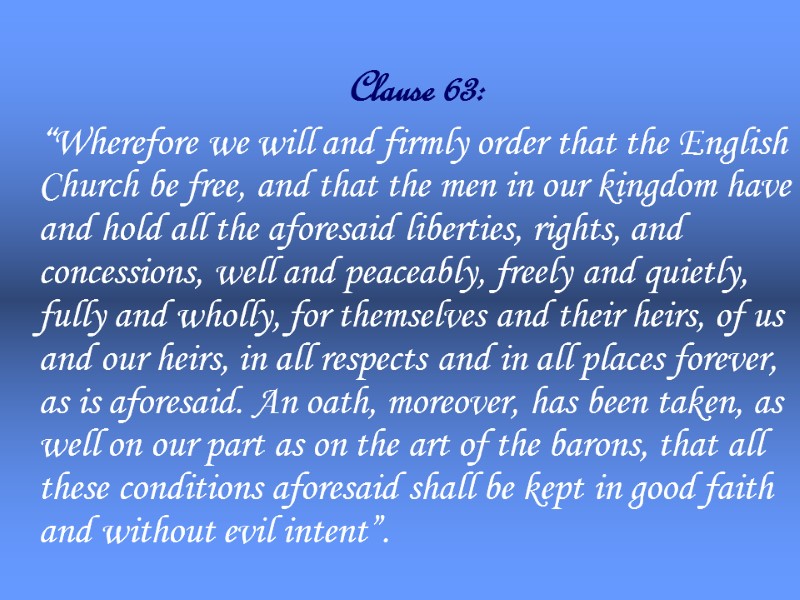
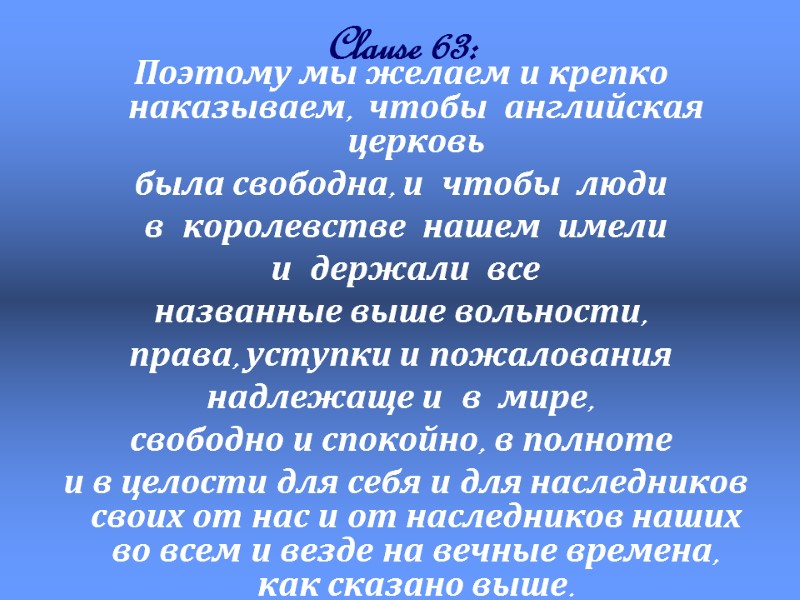
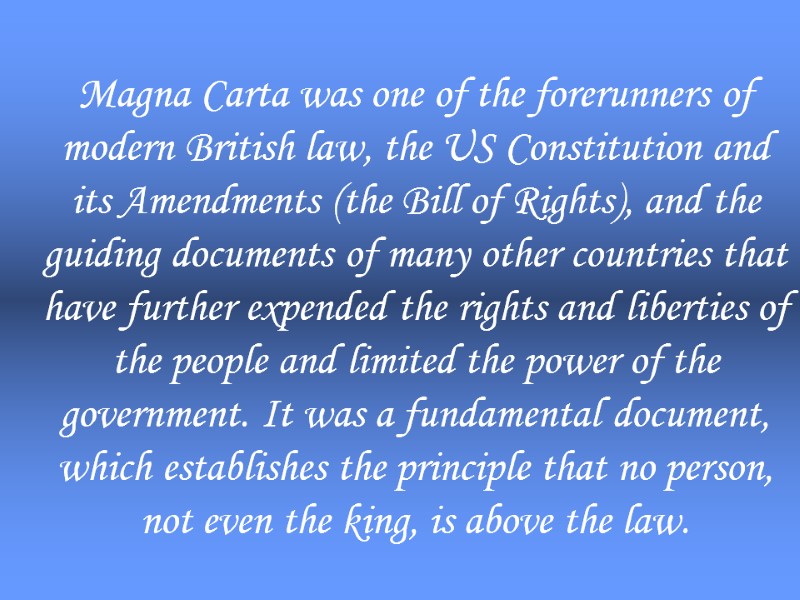

11140-the_magna_charta.ppt
- Количество слайдов: 17
 The Magna Carta
The Magna Carta
 «...here is a law which is above the King and which even he must not break. This reaffirmation of a supreme law and its expression in a general charter is the great work of Magna Carta; and this alone justifies the respect in which men have held it.» Winston Churchill, 1956
«...here is a law which is above the King and which even he must not break. This reaffirmation of a supreme law and its expression in a general charter is the great work of Magna Carta; and this alone justifies the respect in which men have held it.» Winston Churchill, 1956
 John was the king of England in 1199-1216
John was the king of England in 1199-1216
 A scan of the Magna Carta, signed by John.
A scan of the Magna Carta, signed by John.
 The barons provided a draft and after some negotiation King John put his seal to the Magna Carta in Runnymede in June 1215.
The barons provided a draft and after some negotiation King John put his seal to the Magna Carta in Runnymede in June 1215.
 Magna Carta was originally written in Latin. It consists of 63 clauses, which took some power away from king and gave some rights and freedoms to the people.
Magna Carta was originally written in Latin. It consists of 63 clauses, which took some power away from king and gave some rights and freedoms to the people.
 Clause 58: «We will immediately give up the son of Llywelyn and all the hostages of Wales, and the charters delivered to us as security for the peace».
Clause 58: «We will immediately give up the son of Llywelyn and all the hostages of Wales, and the charters delivered to us as security for the peace».
 Clause 58: Мы возвратим сына Левелина немедленно же, а также всех Уэлсских заложников и грамоты, которыя были выданы нам в обозначение мира.
Clause 58: Мы возвратим сына Левелина немедленно же, а также всех Уэлсских заложников и грамоты, которыя были выданы нам в обозначение мира.
 Clause 35: “ There shall be one measure of wine throughout our whole realm, and one measure of ale and one measure of corn - namely, the London quart; - and one width of dyed and resset and hauberk cloths - namely, two ells below the selvage. And with weights, moreover, it shall be as with measures “.
Clause 35: “ There shall be one measure of wine throughout our whole realm, and one measure of ale and one measure of corn - namely, the London quart; - and one width of dyed and resset and hauberk cloths - namely, two ells below the selvage. And with weights, moreover, it shall be as with measures “.
 Clause 35: Одна мера вина пусть будет по всему нашему королевству, и одна мера пива, и одна мера хлеба, именно лондонская четверть, и одна ширина крашеных сукон и некрашеных и сукон для панцирей, именно два локтя между краями; то же, что о мерах, пусть относится и к весам.
Clause 35: Одна мера вина пусть будет по всему нашему королевству, и одна мера пива, и одна мера хлеба, именно лондонская четверть, и одна ширина крашеных сукон и некрашеных и сукон для панцирей, именно два локтя между краями; то же, что о мерах, пусть относится и к весам.
 Clause 38: "No official shall place a man on trial upon his own unsupported statement, without producing credible witnesses to the truth of it." Clause 39: "No free man shall be seized or imprisoned, or stripped of his rights and possessions, or outlawed or exiled, or deprived of his standing in any other way, nor will we proceed with force against him, or send others to do so, except by the lawful judgment of his equals or by the law of the land."
Clause 38: "No official shall place a man on trial upon his own unsupported statement, without producing credible witnesses to the truth of it." Clause 39: "No free man shall be seized or imprisoned, or stripped of his rights and possessions, or outlawed or exiled, or deprived of his standing in any other way, nor will we proceed with force against him, or send others to do so, except by the lawful judgment of his equals or by the law of the land."
 Clause 38: Впредь никакой чиновник не должен привлекать кого-либо к ответу (на суде, с применением ордалий) лишь на основании своего собственного устного заявления, не привлекая для этого заслуживающих доверия свидетелей.
Clause 38: Впредь никакой чиновник не должен привлекать кого-либо к ответу (на суде, с применением ордалий) лишь на основании своего собственного устного заявления, не привлекая для этого заслуживающих доверия свидетелей.
 Clause 39: Ни один свободный человек не будет арестован или заключен в тюрьму, или лишен владения, или объявлен стоящим вне закона, или изгнан, или каким-либо (иным) способом обездолен, и мы не пойдем на него и не пошлем на него иначе, как по законному приговору равных его (его пэров) и по закону страны.
Clause 39: Ни один свободный человек не будет арестован или заключен в тюрьму, или лишен владения, или объявлен стоящим вне закона, или изгнан, или каким-либо (иным) способом обездолен, и мы не пойдем на него и не пошлем на него иначе, как по законному приговору равных его (его пэров) и по закону страны.
 Clause 63: “Wherefore we will and firmly order that the English Church be free, and that the men in our kingdom have and hold all the aforesaid liberties, rights, and concessions, well and peaceably, freely and quietly, fully and wholly, for themselves and their heirs, of us and our heirs, in all respects and in all places forever, as is aforesaid. An oath, moreover, has been taken, as well on our part as on the art of the barons, that all these conditions aforesaid shall be kept in good faith and without evil intent”.
Clause 63: “Wherefore we will and firmly order that the English Church be free, and that the men in our kingdom have and hold all the aforesaid liberties, rights, and concessions, well and peaceably, freely and quietly, fully and wholly, for themselves and their heirs, of us and our heirs, in all respects and in all places forever, as is aforesaid. An oath, moreover, has been taken, as well on our part as on the art of the barons, that all these conditions aforesaid shall be kept in good faith and without evil intent”.
 Clause 63: Поэтому мы желаем и крепко наказываем, чтобы английская церковь была свободна, и чтобы люди в королевстве нашем имели и держали все названные выше вольности, права, уступки и пожалования надлежаще и в мире, свободно и спокойно, в полноте и в целости для себя и для наследников своих от нас и от наследников наших во всем и везде на вечные времена, как сказано выше.
Clause 63: Поэтому мы желаем и крепко наказываем, чтобы английская церковь была свободна, и чтобы люди в королевстве нашем имели и держали все названные выше вольности, права, уступки и пожалования надлежаще и в мире, свободно и спокойно, в полноте и в целости для себя и для наследников своих от нас и от наследников наших во всем и везде на вечные времена, как сказано выше.
 Magna Carta was one of the forerunners of modern British law, the US Constitution and its Amendments (the Bill of Rights), and the guiding documents of many other countries that have further expended the rights and liberties of the people and limited the power of the government. It was a fundamental document, which establishes the principle that no person, not even the king, is above the law.
Magna Carta was one of the forerunners of modern British law, the US Constitution and its Amendments (the Bill of Rights), and the guiding documents of many other countries that have further expended the rights and liberties of the people and limited the power of the government. It was a fundamental document, which establishes the principle that no person, not even the king, is above the law.
 Thank you for attention!
Thank you for attention!

